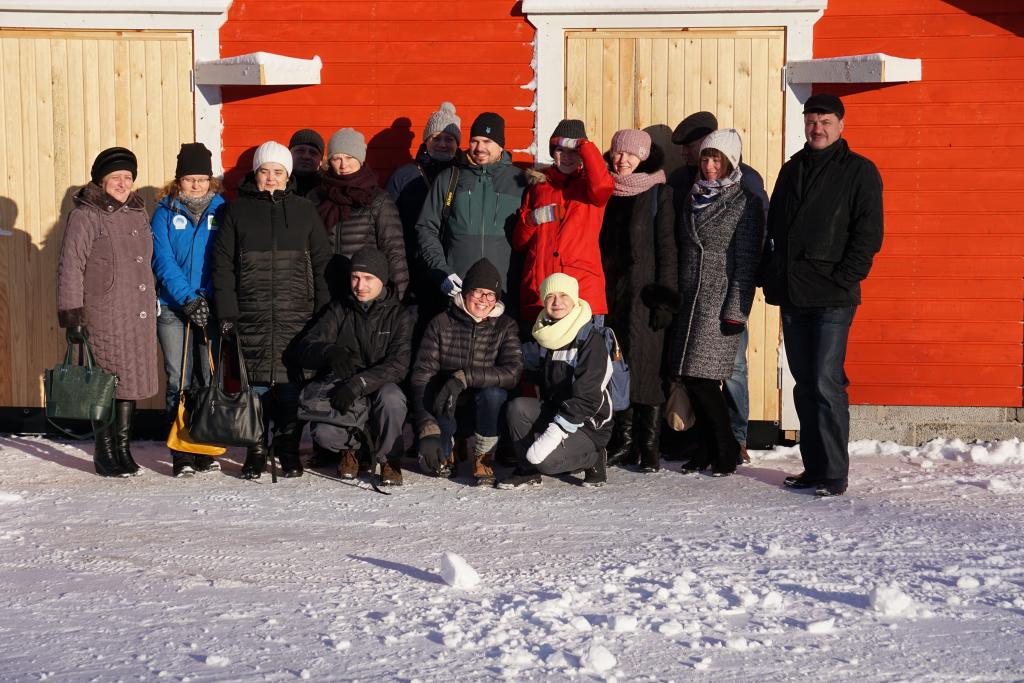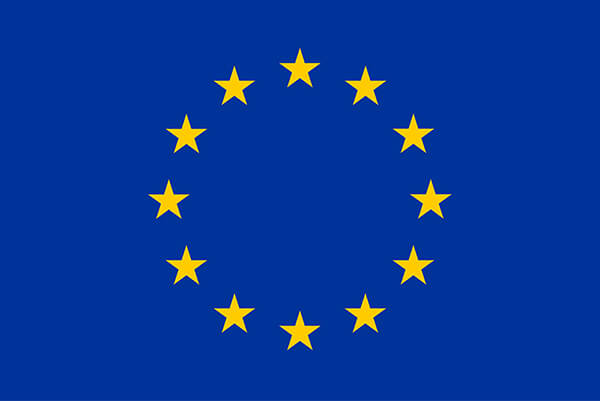Russian visitors interested in rural waste management in Finland
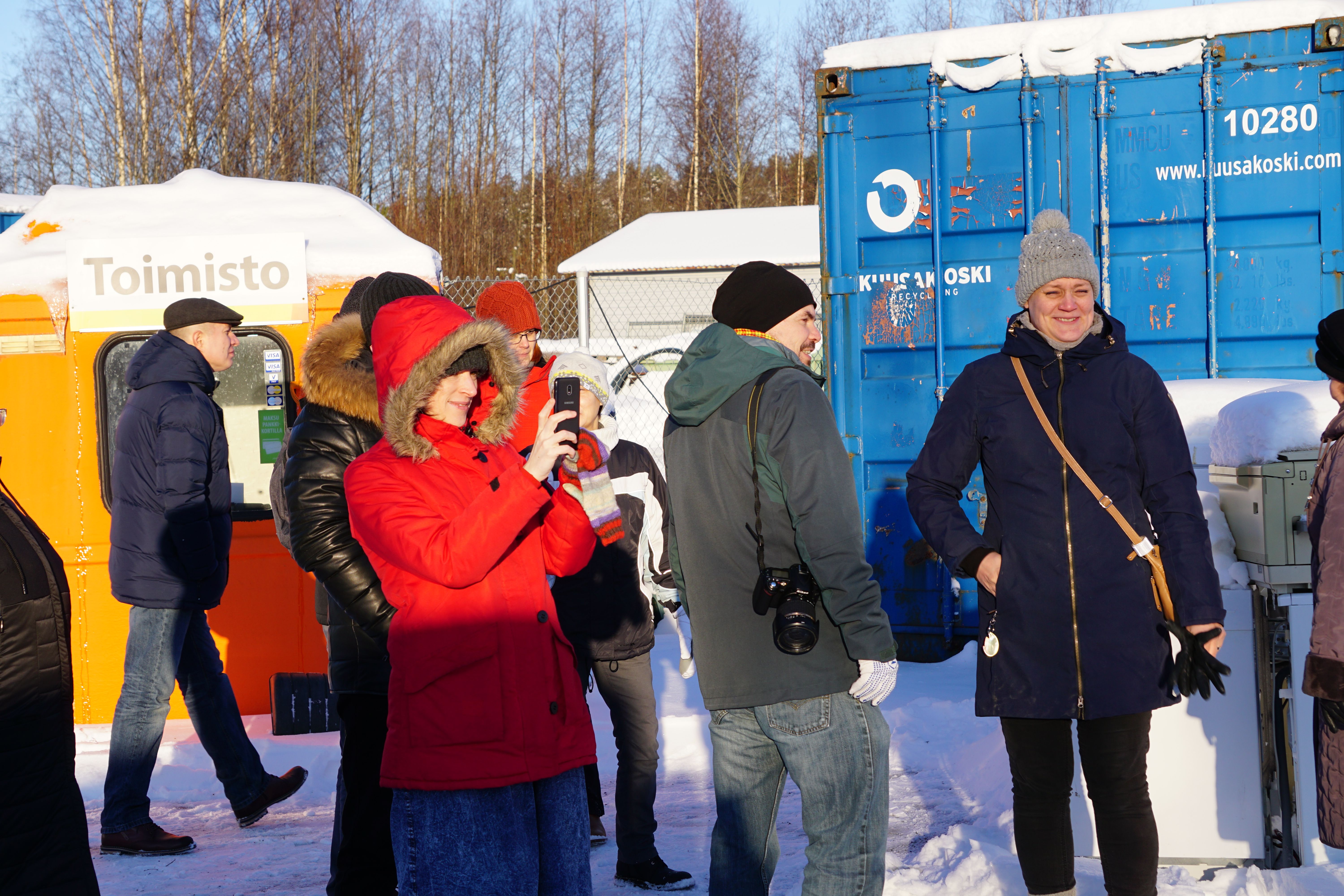
As part of Karelia CBC project Wasteless Karelia (WLK) a group of Russian visitors participated in a 2-day study tour to learn about waste management in Finland, with a particular focus on rural waste management in North Karelia.
The group consisted of teachers and administrative stuff from the project three target villages (Tolvuja, Vedlozero, Naistenjärvi) and was complemented by the head of Regional waste management operator of Karelian Republic and a representative of recycling start-up Kalypso from Petrozavodsk.
The first part of the two day programme included a visit to Kontiosuo Waste center, where participants where given presentations on waste management in Finland and regionally in Joensuu and surrounding by Tommi Kukkonen from Puhas Oy and by Anna Kettunen from the Waste Management Board of the city of Joensuu. Information included details on Finnish legislation, statistical background on waste and sorting in Finland and municipal solutions and challenges of waste management in North Karelia. Additionally, Tommi Kukkonen from Puhas Oy guided the group around Kontiosuo recycling/waste center to explain different steps and services in the regional waste management and transport system.

In the afternoon the group visited Itä-Suomen koulu (ISK), a bilingual Russian/Finnish school, to learn about environmental education at Finnish schools. Saku Punkkari, teacher of biology and geography at ISK presented the multiple activities and projects of environmental education at ISK. For instance, the integration of environmental aspects into the general school curriculum but also education related to everyday activities such as prevention of food waste or sorting activities at school. Additionally, with the help of two pupils from ISK he introduced participants to the Karelia CBC project “Green school” that involves schools in Finland and Russia to raise participatory environmental actions at schools. The visit to ISK was wrapped up by a short Presentation from Taru Peltola (SYKE/UEF) who presented the results of a school survey conducted by WLK project in six schools in Finland (Valtimo, Juuka, ISK) and Russia (Tolvuja, Naistenjärvi, Vedlozero).
Following the visit to ISK the group continued to University of Eastern Finland and its Department of Geographical and Historical studies which coordinates the WLK project. There, Reeta Rönkkö from Union of Rural Culture and Education (MSL) introduced the group to WLK project activities in the village of Mekrijärvi to give a more detailed impression on the challenges and solutions for rural waste management. Following the rural perspective, Svetlana Silvennoinen-Hiisku, a representative of finish Ministry of Environment, provided the participants with a detailed perspective of waste management from the ministries perspective including its embeddedness within the wider legislative and strategic framework of environmental regulation. Finally, the day was wrapped up by Anton Scherbak from the Institute of Economic, Russian Academy of Sciences Petrozavodsk, who presented the results of the WLK survey on waste management and local attitudes conducted in the Russian pilot villages.
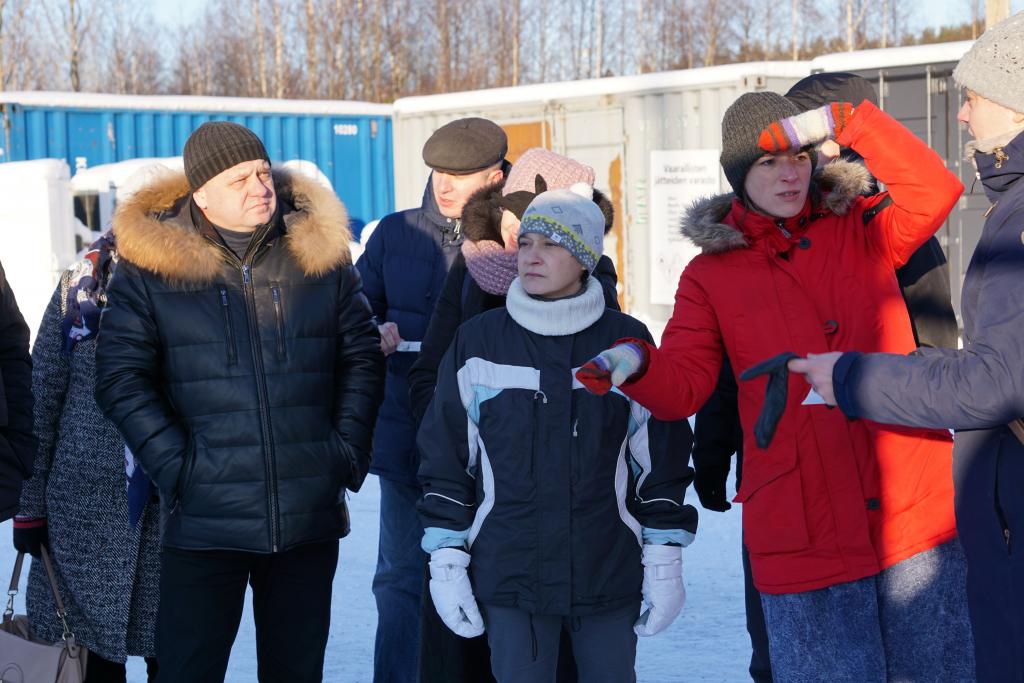
The second day of the tour was a travel day with the main destination being the village of Timanttikylät near Juuka. There the head of the local village association Heidi Tanskanen provided a short introduction to the history and workings in the village. The village association has a 20 years history and has engaged local residents in collaboration and in developing services such as tourism in the area. This also included the transformation of the former village shop into a public village house. In the last years, the improvement of local waste management facilities has been high on the local agenda. In 2019 with financial support from WasteLess Karelias project and the help of volunteers the association build a new storage building for public waste collection. The building hosts bins for glass and metal waste and a shared mixed waste collection container. Additionally, a paper collection container is situated next to the building and in spring the local mixed waste collection point will be transferred to the building.
The visit to Timanttikylät village house was supplemented by a presentation of Anne Holma from SYKE who provided interesting information on what happens to sorted waste in Finland. The visitors were introduced to different sorted waste material streams and their destinations for further processing in Finland and abroad. It also presented information on the products that are made from recycled material. The presentation raised many interest and questions among the participants and similar information was deemed important to motivate recycling in Russia. Next, Anja Räisänen from Jätekukko Oy, the regional operating communal waste management company introduced the visitors to waste management in the area and further provided details on Jätekukko’s environmental education activities with adults and particularly with schools, such as their Kummikoulu (partner schools) programme.
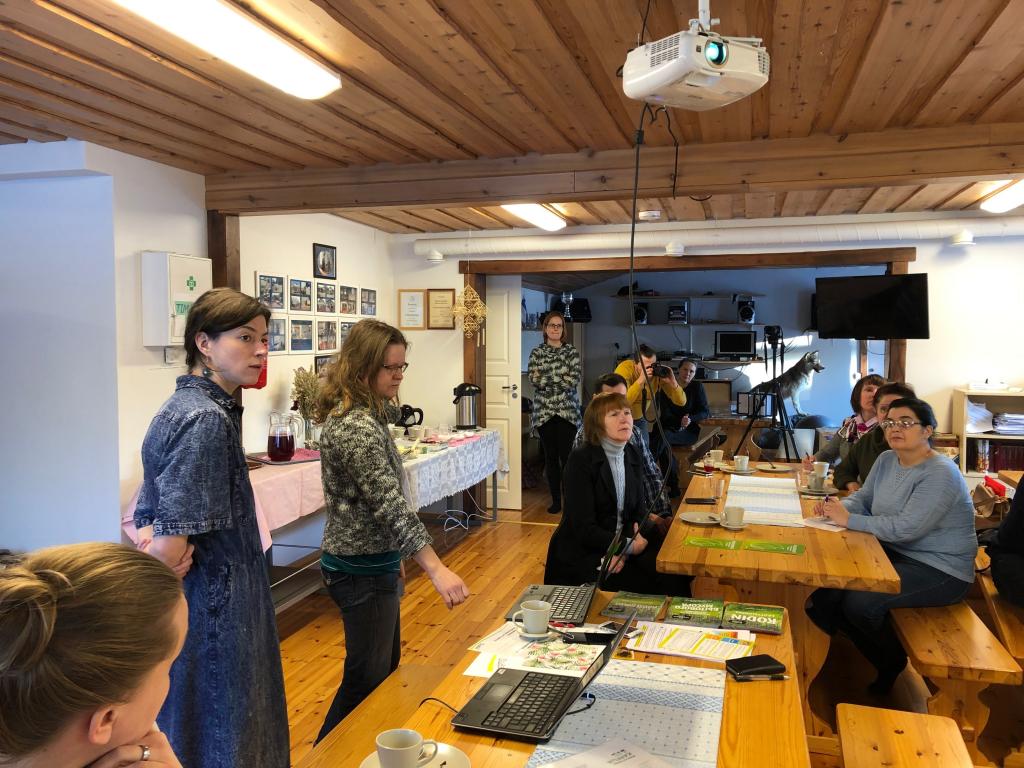
Hence, the Russian visitors could not only hear about local waste management system and the process of developing and building rural solutions but see how waste management through local initiative can work in practice. The tour then continued to Jätekukkos’ waste collection & sorting centre in Juuka where participants received an impression on how public waste collection works in smaller places compared to the large scale visit at Kontiosuo the previous day. Before leaving Juuka participants shortly visited a local recycling centre which is managed by a local association. The centre repairs and recycles furniture, clothes, dishes, books and electronic devices and sells them for reasonable prices.
Finally, after a long day of hearing, seeing and talking about waste the tour took a quick detour to Koli national park to admire the beautiful landscape and a wonderful winterly sunset. Nevertheless, even in Koli participants got a brief introduction on recycling and sorting facilities for tourists visiting the national park.
Prior to the departure of our Russian visitors the last morning was reserved for a short feedback discussion with all participants. The feedback was very positive from all participants. Participants were also amazed on the shared responsibilities of waste management in Finland, for instance through the producer responsibility scheme handled by Rinkki with their sorting stations or the municipal management of household waste. Additionally, participants were fascinated from the efforts on environmental education they had been presented with at Itä-Suomen Koulu and particularly the teachers of our group pointed out that it had given them new motivation to push for more environmental education in their own teaching. While fascinated by the Finnish experience they also realized that there is a lot of work ahead for Russia to reach the same level as Finland.
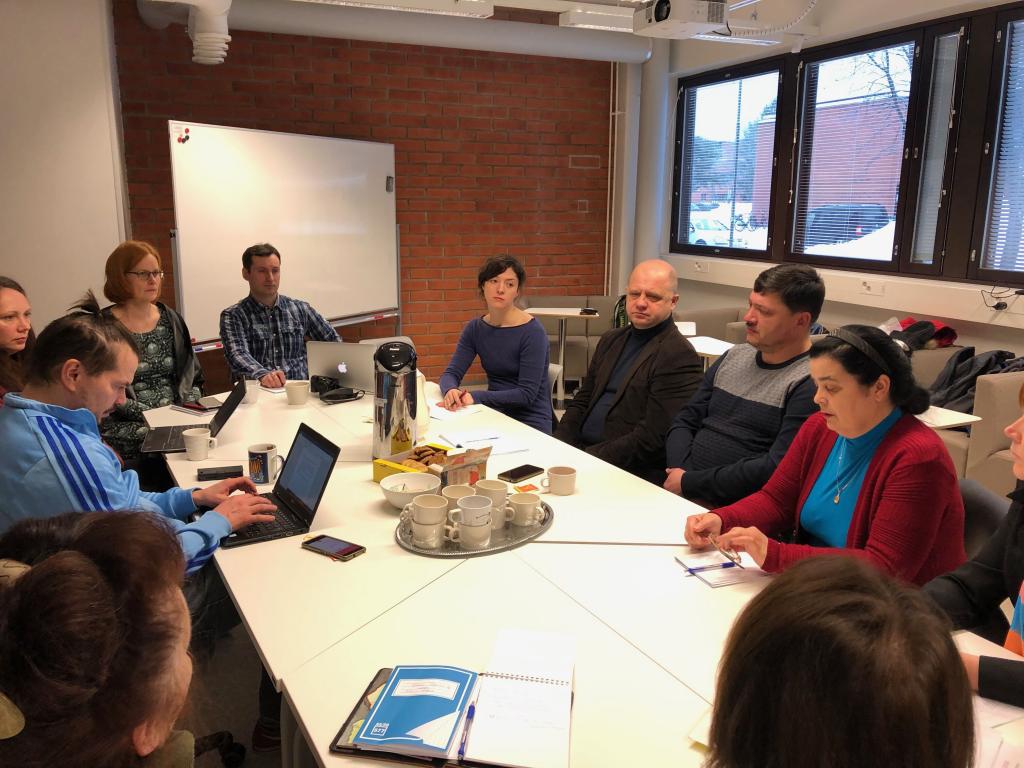
While following our study tour, the head of Karelian Republic regional waste operator said: “What Finland has achieved in the last 20 years in relation to waste management, we plan to make in 4 years”, this might be a slight bit too optimistic. Nevertheless, first steps are done and the participants returned to their villages at least with new ideas and hopefully improved motivation to tackle the challenge of a WasteLess Karelia.
